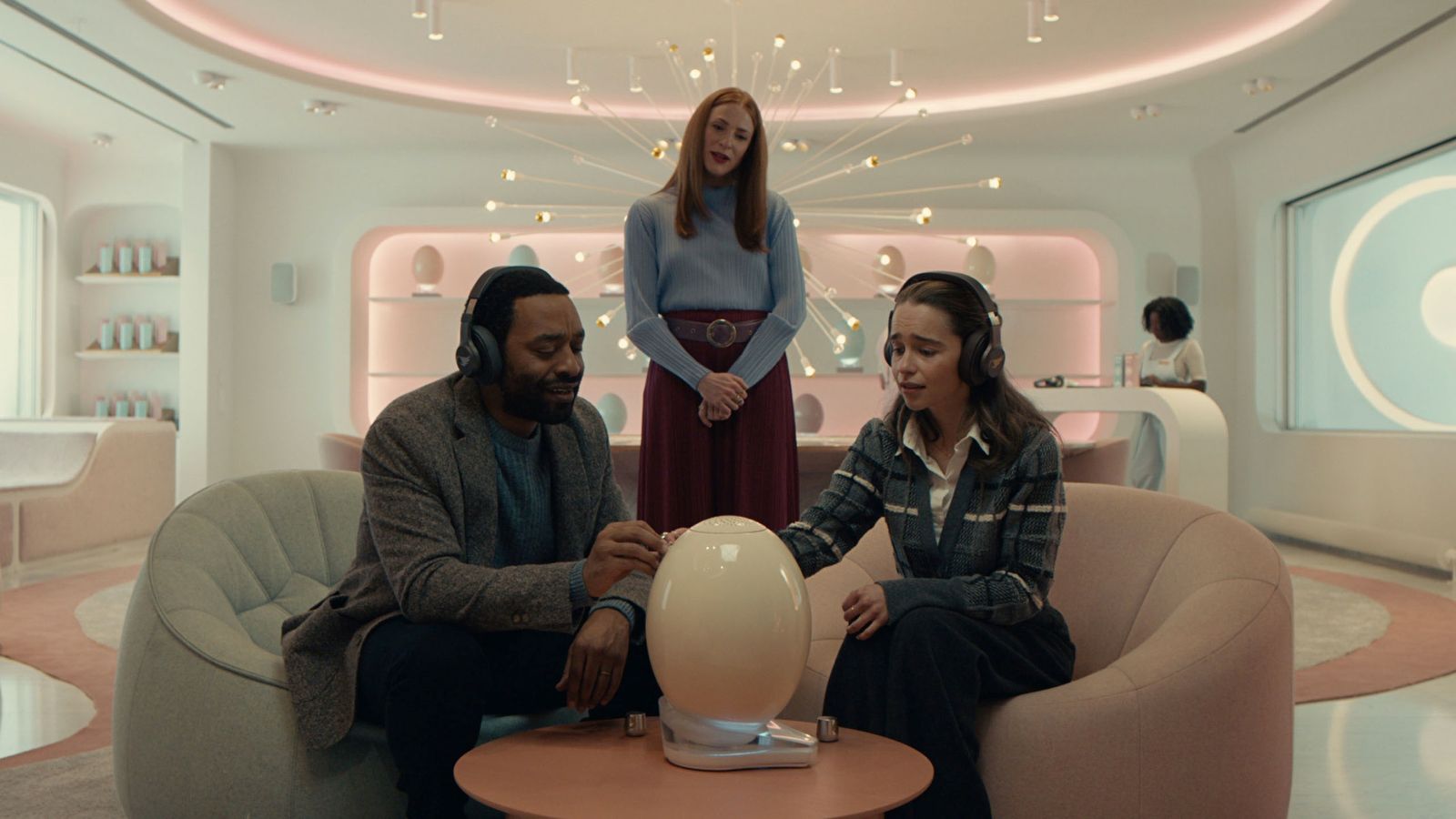The first day of online press screenings at Sundance threw up some interesting films. We took a look at a documentary on a musical icon, a sci-fi dramedy on the parenthood, and a Mexican spin on the old, ‘Captain, my Captain!’ inspirational teacher formula.
Little Richard: I Am Everything (Lisa Cortés/ USA/ 2023/ 98 mins) is a breakneck portrait of one of the true pioneers of rock n’ roll. A dizzying collage of archival performance, interviews and admiring friends and fans that rattles through the life of the man born Richard Wayne Penniman at a pace matching his early hits like ‘Tutti Frutti’, Lisa Cortés’ long-overdue documentary is on a mission to wrestle the creation myth of American popular music back in favour of the black and queer artists who’s trailblazing work was appropriated by the white cultural establishment. In places as flamboyant and unabashedly camp as Little Richard himself, with an emphasis on the influence he had on other black, queer artists like Billy Porter and academics like Tavia Nyong’o, it’s a celebration that while undoubtedly worthwhile struggles to reconcile certain aspects of his life and omits some trickier details entirely.
With Richard being no shrinking violet when it came to self-promotion, there was a treasure trove of interviews to give his own perspective on every aspect of his life and career. Where further context is required, Cortés makes the interesting choice to reenact a seminal performance with a contemporary artist, like Valerie June and John P. Kee, and surround them with CGI stardust, as if channeling inspiration from the man himself. The effect is gaudy and cheesy, but you suspect the man himself would approve. In fact, there is little about I Am Everything that one suspects wouldn’t come with a posthumous seal of approval. It briefly mentions orgies and his gay lifestyle, but gives most attention to his relationships with women, and omits his lifelong penchant for voyeurism. It also sanitises the periods where he became born again, leaving out that he was forced to leave the conservative Oakwood College where he’d been studying theology, for exposing himself to a male student. It’s still a fascinating documentary, and a worthwhile insistence in his place on the pantheon of the greats, but one wishes the filmmakers would have been comfortable enough with its subject’s contradictions to be a little more warts-and-all. 3/5
The Pod Generation (Sophie Barthes/ Belgium, France, UK/ 2022) is a sly satire on consumerism posing as a gorgeous-looking sci-fi parable on parenthood. In the near future Rachel (Emilia Clark) and Alvy (Chiwetel Ejiofor) are a couple who decide to have a baby using some new technology; a sleek pod in which your child can grow externally, leaving mum free to carry on her career interrupted. It’s a neat concept, and like the best episodes of Black Mirror, set in a future that has just enough of a tweak on recognisable tech that makes it all feel plausible. It’s also refreshing to have a film embrace a bright colour palette. With the cinematography and production design, it’s a real feast for the eyes.
The storytelling is a little more slight. Once the baby is in the pod the film finds itself in a repetitive groove and what it’s saying on the surface about the nature of parenting isn’t as interesting as the commodification of childbirth and the outsourcing of gestation to benefit corporate interests, while pretending to be beneficial to the mother. Still, there are charming performances from Clarke and Ejiofor, and an especially good supporting turn from Rosalie Craig as Linda, the corporate drone from ‘The Womb Center’ guiding Rachel and Alvy through the pod process, who has the air of bland menace that Hannah Arendt wrote about at Nuremburg. While it might be more narratively limp than it thinks it is, The Pod Generation is a fairly delightful little dramedy with a seriously beautiful aesthetic sense. 3/5
Sundance wouldn’t Sundance without a feel-good inspirational story. Bonus points if it’s drawn from real life. Radical (Christopher Zalla/ USA/ 2023/ 127 mins) duly delivers. Eugenio Derbez (who previously dazzled Sundance as the music teacher in CODA), plays unorthodox teacher Sergio Juarez whose methods changed the fortunes of his class of sixth-graders at a dilapidated school in Matamoros, Mexico. There’s nothing in Christopher Zalla’s film itself that matches its title, but this is a strong riff on a standard format, one compellingly spiked by the very real struggles and deprivations faced by the students in this dangerous town dominated by gangs.
Derbez is convincingly ebullient as Sergio, who succeeds simply by pointing his students in the direction that interests them, and framing knowledge as a thing to be worked towards and cherished, rather than just learned rote from a book. It could be twee, but it’s impossible not to feel genuine delight when a young girl gets her own literal eureka moment on water displacement while bathing her younger siblings. In fact, it’s really the kids that impress, with Derbez rather a generous facilitator. Some stilted moments aside, the three central child actors (Mia Fernandez Solis, Danilo Guardiola, and Jennifer Trejo) are tremendous. The overall result is predictable, but it is willing to to depict some real moments of crisis and tragedy and doesn’t wrap everything in a neat package. Not a film one may go into with the highest of expectations, but Radical is a pleasant surprise, paced beautifully and handsomely made. 3/5


Comments